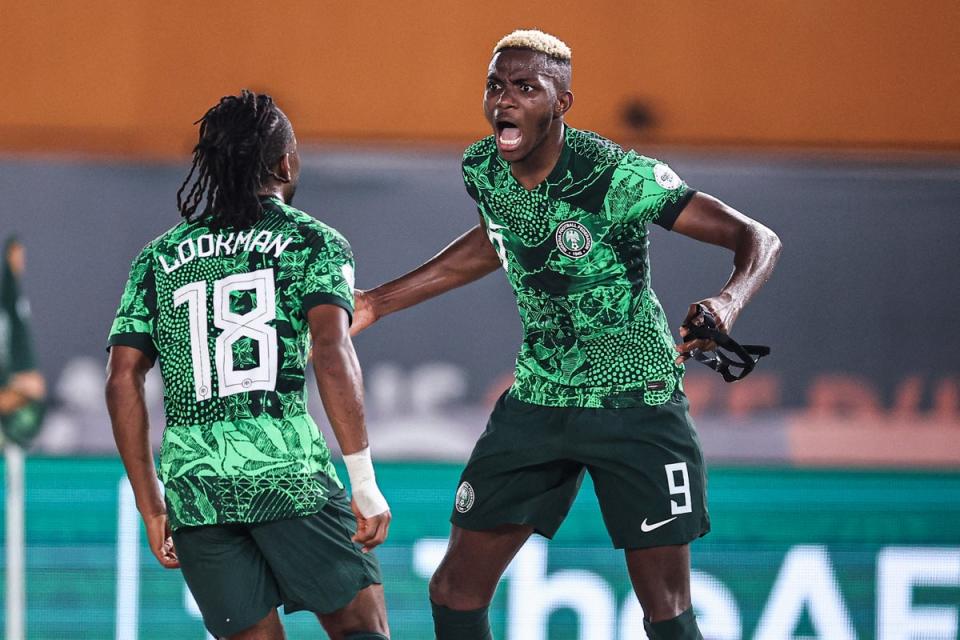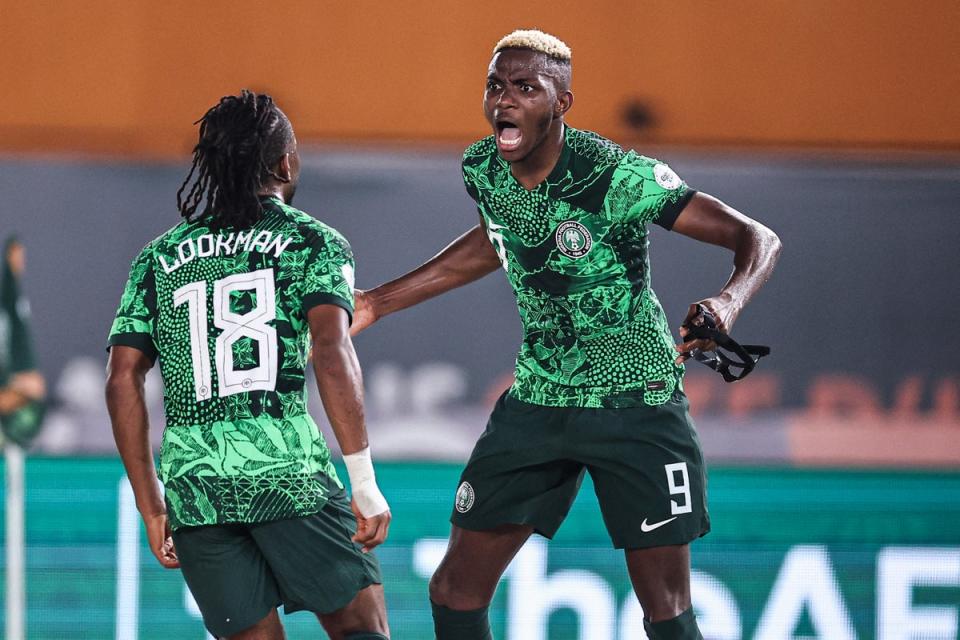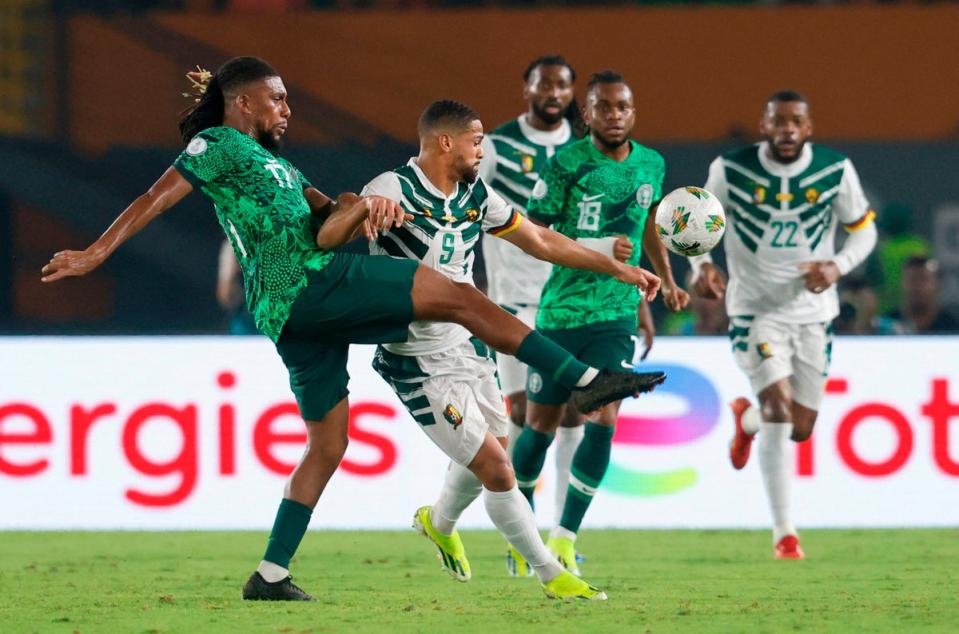Nigeria handed unexpected chance to end generation of missed opportunities

Rewind to the mid- and late-1990s and there was just one African nation widely expected to become the big challenger to European and South American countries on the international football landscape: Nigeria.
The Super Eagles reached the last 16 in both ‘94 and ‘98, the iconic team of Jay-Jay Okocha, Sunday Oliseh, Finidi George and Daniel Amokachi, later added to by Nwankwo Kanu, Taribo West and Celestine Babayaro. With a significant section of the latter squad aged 24 and under, it seemed they should only go from strength to strength, particularly after winning the Africa Cup of Nations in ‘94 as well.
It didn’t quite happen that way.
Nigeria withdrew from the following Afcon after Sani Abacha’s coup d’etat, then were banned from the ‘98 edition as a consequence. It was 19 years until they won their next (and so far last) Afcon and - more notably perhaps - it is now a full quarter of a century since France ‘98, during which time they have won matches on just two further occasions at World Cup finals.
An entire generation of supporters, of citizens and indeed of playing talent have grown up since that early promise and had to watch on as Nigeria squander chances or fall short - but perhaps this time around the stars have aligned for the modern Super Eagles to reach their potential and fly to glory in Ivory Coast.
This year’s Afcon has already seen them somewhat cruise almost unnoticed through four matches unbeaten; while pre-tournament storylines centred around Mohamed Salah, around the hosts, around Morocco’s attempt to equal their exploits at Qatar ‘22 and around Senegal’s quest to retain their title, Nigeria have simply turned up and done largely what they have needed to.
Three group games yielded seven points: two victories by a 1-0 scoreline and a 1-1 draw. Low key, largely, no fuss, not setting the tournament alight - but not setting fire to their own hopes either, as Ghana managed to do in the groups and Senegal did likewise in the round of 16. Their own first knockout encounter was Nigeria’s most impressive outing yet; they created more chances than Cameroon, certainly a lot more high-quality ones, prevented a single shot being taken on their goal and ultimately had the cutting edge through Ademola Lookman to win 2-0.

And now it’s impossible to argue anything other than the route to success having opened up for Nigeria. They are the highest-ranked nation left in the 2023 Afcon - not always a great yardstick, but at least indicative - while none of the eight quarter-finalist countries from two years ago in Cameroon have made it that far this time around. Nor are there any of Africa’s five representatives from the men’s World Cup a little over 13 months ago left in the tournament.
Not that it will be easy: they face Angola next and could get Cabo Verde in the semis, both of whom matched Nigeria’s record in the group stage. South Africa are the alternative to the latter, and they’ve already seen off the much-fancied Morocco. And looking ahead to a potential final? It could now easily be the hosts Ivory Coast, who they’ve already beaten in the groups.
Nor is it typically easy to point to star names for the Super Eagles and say that’s where wins should come from: Lookman, Victor Osimhen and Moses Simon should present a formidable attacking line but it’s three clean sheets in a row which have instead see them progress this far. Angola have also been relatively free-scoring during the tournament, but Nigeria have the lowest xG conceded: just 1.6 for the entire tournament so far.

Solidity, then, will doubtless remain their first port of call - but if the heat of battle makes them resort to an effective shootout of attacking talent, the Super Eagles have to again be highly fancied. They’ve created 16 big chances at the Afcon, more than anyone else, but they’ve also missed 12 of them - again the highest in the category.
Osimhen, an elite striker with Napoli for the past few seasons, has been the biggest culprit. But given his track record and his strike record of 21 goals in 32 caps thus far, there’s again reason to suspect he’ll revert to the mean if chances keep coming his way.
Of the teams left fighting it out, Nigeria have the history, the recent form and the best No.9 striker. International success has been a long time returning for those in the famous green; now it’s up to them to seize this unexpected chance and start writing new reasons, new chapters, of valid hope for the future.
